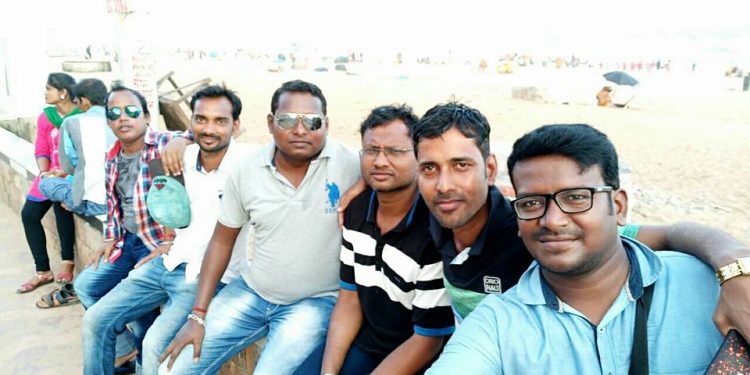Charudutta Panigrahi
Khati — the closest English language gets to defining it is commune — can be found even in countries such as Greece, Spain and Estonia. Small group of men (it is mostly men) mill around a street corner, spending time aimlessly, at leisure. It is remarkable how the same set of people find time and newness every time they meet in similar social and physical settings, day after day. This is an ode to the human spirit, which is always craving for intimacy. Perhaps intimacy can never be saturated or overwhelm.
Sociologists have discovered two distinct patterns in communes. Richard Sosis and Eric Bressler had studied nineteenth-century communes in the US.
The first feature was that more demanding communes lasted longer. Bigger sacrifices fostered greater emotional commitment to the group. In Cuttack, Berhampur, Bhubaneswar, Sambalpur and many other parts of Odisha there are people who have run to their khatis throughout their working lives and even after retirement like mongoose to morphine.
Silence takes up about 15 per cent of the time in khati, that is, until one of the members is picked up for “riling”.
This ‘riling’ is fun and the binding factor. No value judgements, no holds barred, the riling or the teasing takes turns. About 80 per cent of the time is spent on animated, excited discussion of politics. Communes are supposed to build communities or cohesive groups that are not necessarily homogeneous.
Khatis are the necessary
tiny spaces within
systems and compliance
that unshackle minds
and offer freedom
Monetary support, networking for business development, marriage liaisons, healthcare are all matters that get sorted out in a khati. Cuttack khatis are traditionally so strong that they are known to run almost parallel to households. So strong is the call of khati that members forget chores to come and join khatis in the evenings. Such is the magnetism of khati.
Established khatis convene at the same place generation after generation and there are iconic khatis such as the Stadium Khati, Ravenhaw Nakula Khati, Balu Bazaar Khati, Chandni Chowk Khati, Chandi Mandir Khati, Buxi Bazaar Khati in Cuttack. Bhubaneswar adopted khati late as it was born late. But over the last three decades, Mausi Maa Khati, Bapujee Nagar Jhadu Khati, Jharana Khati, IRC Khati, in Bhubaneswar have built intergenerational relevance. Detractors say khati is a place for people who have nothing else to do. But why should people always do something? Is ‘not doing anything’ also not doing something?
‘La Dolce Far Niente’ is an expression in Italian, which means the ‘sweetness of doing nothing’. Doing nothing is the opposite of state of doing. It is the state of being. Khatis provide time to do nothing, to nor prove a point anyone and to drop guard and be oneself. Khati is a breathing space.
Villages in Odisha also have Bhagabata tungis that are socio-cultural centres. Odisha is making efforts to revive these because the tungis are the confluence of the quaint society of a village — where the old and young from all walks of life and all strata gather to enjoy, learn, discuss and ultimately develop and promote value systems with typical comity of Odia life.
There are khatis in places such as Manhattan Square. They are khatis on the move. The speed of life has percolated everywhere, even into the pauses of life. Some in the Bay area in the US are essentially vendors gathering and sharing a smoke before they head out to their next sales. Yes, there is banter and that classifies it as a khati – a little respite from the grind.
If Zobra Khati at one point had Akshaya Mohanty and ‘Ravenshaw rebels’ discuss campus rebellion; today seniors sitting before Jayadev Bhawan may have KALIA scheme or World Cup Hockey to discuss and debate.
Freewheeling debate and free spirit need space. Khatis makes bohos out of conformists. They give space for counter-culturists within the contours of systems and compliance. Spaces without shackles is the key to the soft power of Odisha. Khatis are key to this power. You can do nothing and yet do everything by being in a khati. Don’t miss life.
The writer is an economist and public policy expert. He is based in Delhi and can be contacted at charu.panigrahi@gmail.com.






































